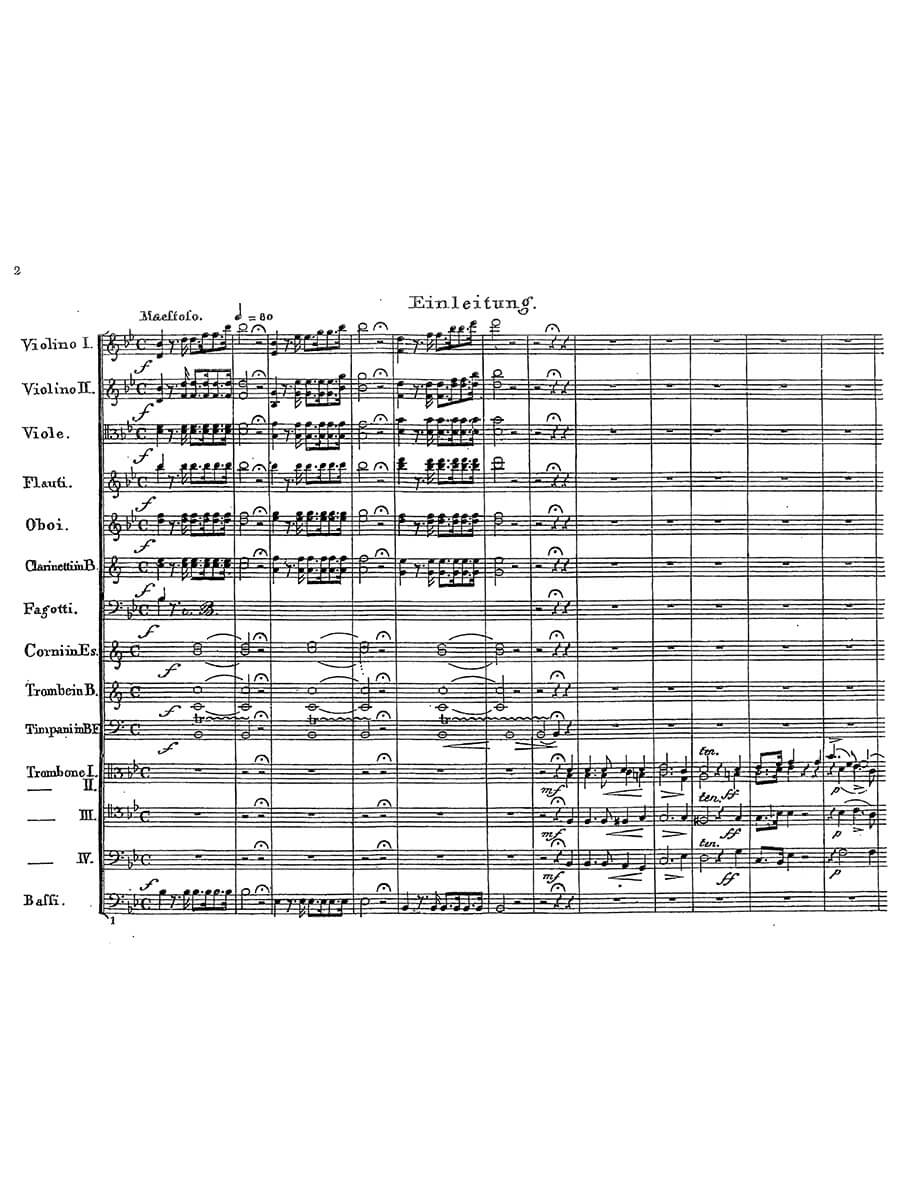Das Weltgericht (The Universal Judgement), Oratorio (A4, landscape format)
Schneider, Friedrich
62,00 €
Preface
Friedrich Schneider – Das Weltgericht (The Universal Judgement), Oratorio
(b. Altwaltersdorf, 3 January 1786 – died Dessau, 23 November 1853)
Preface
“Handel of our time” (“Händel unserer Zeit”) – this is how Friedrich Schneider was described in the Allgemeine musikalische Zeitung on March 8, 1837. Schneider, whose full name was Johann Christian Friedrich Schneider, was one of the most important personalities of the Leipzig music scene during his lifetime: in 1806 he became singing teacher of the Ratsfreischule, in 1807 organist of the Universitätskirche, in 1810 music director of the Seconda’sche Operntruppe, in 1813 organist of the Thomaskirche, in 1816 director of the Singakademie and in 1817 music director of the Stadttheater. In 1811 he played the solo part in the premiere of Ludwig van Beethoven’s 5th Piano Concerto in Leipzig. In addition, Schneider was a corrector and advisor to the publishing house Bureau de Musique, now known as Edition Peters. He finally achieved national and international recognition because of his oratorio Das Weltgericht, which was the most performed contemporary work of its kind until Felix Mendelssohn-Bartholdy’s Paulus. Das Weltgericht was premiered at the Leipzig Gewandhaus on March 6, 1820, and was an absolute hit according to the report by music writer and composer Johann Friedrich Rochlitz in the Allgemeine musikalische Zeitung of March 15, 1820: “The general respect and excellent participation that the worthy, deserving man and artist [Schneider] has earned here, willingly united everything that could be united in order to bring the work to a perfect and also brilliant representation.” (“Die allgemeine Achtung und ausgezeichnete Theilnahme, die sich der werthe, verdiente Mann und Künstler [Schneider] hier erworben hat, vereinigte freywillig, was sich irgend vereinen liess, um das Werk zur vollkommenen und auch glänzenden Darstellung zu bringen.”) After the success in Leipzig, performances followed in Berlin, Quedlinburg, Prague, Dessau, Altenburg, Magdeburg, Frankfurt am Main, Vienna, Gera, Görlitz, Erfurt, Stuttgart and Cologne. According to a reviewer in the Berliner allgemeine musikalische Zeitung, “since Haydn’s composition of the Seasons no such significant work had emerged in the field of the oratorio.” (“Seit Haidn‘s Komposition der Jahreszeiten ist im Fache des Oratoriums kein so bedeutendes Werk hervorgegangen.”) The triumphant success of the Weltgericht also helped Schneider to the position of the Herzoglich Anhalt-Dessauischen Hofkapellmeister. In 1830 he received honorary doctorates from the universities of Halle and Leipzig, and later became an honorary member of the New York Philharmonic Society, the Royal Academy of Music in Stockholm, and was awarded the Royal Danish Dannebrog Order. After Schneider’s death, in the ninth volume of the Musikalisches Conversations-Lexikon by Hermann Mendel and August Reissmann in 1878, it is written: “Much celebrated in his life, decorated with medals and honorary diplomas, he is now already one of the half-forgotten.” (“In seinem Leben viel gefeiert, durch Orden und Ehrendiplome ausgezeichnet, gehört er jetzt schon zu den Halbvergessenen.”) So how is it that Schneider, an important composer and musician in his time, as well as his successful work Das Weltgericht, is already “half-forgotten” in the second half of the 19th century and today almost “completely forgotten”? …
Read full preface / Das ganze Vorwort lesen> HERE
Score Data
| Edition | Repertoire Explorer |
|---|---|
| Genre | Choir/Voice & Orchestra |
| Pages | 298 |
| Special Size | 210 x 297 mm landscape format |
| Printing | Reprint |
